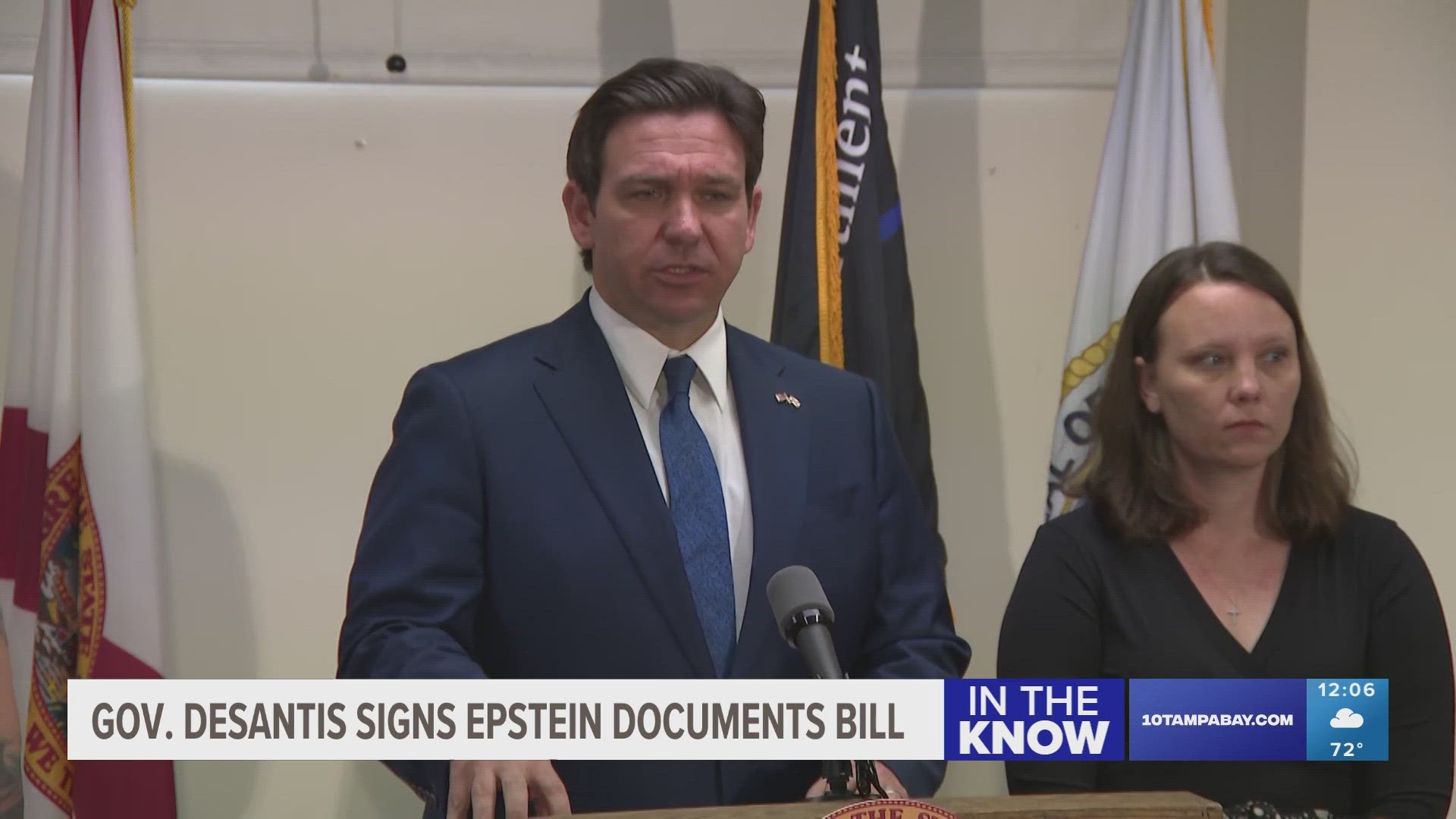PALM BEACH, Fla. — Victims of the late sex offender Jeffrey Epstein joined Governor Ron DeSantis in signing a bill that would greenlight the release of evidence from a 2006 grand jury.
During a press conference Thursday morning in Palm Beach, the city where the grand jury was convened, DeSantis said the unsealing of documents would finally help survivors get answers on how Epstein secured a controversial plea deal, avoiding more serious charges until 2019.
"They say that justice delayed is justice denied," DeSantis said. "I think in many respects, this whole ordeal has proven that to be true."
Two women who were victimized as teenagers by Jeffrey Epstein at his Palm Beach mansion shared what the legislation means to them.
Jena-Lisa Jones was 14 years old when she was introduced to Epstein.
"For over a decade, we've had no closure whatsoever," Jones said. "We have been left in the dark for so long with no answers to...why things played out the way that they did."
Haley Robson was 16 years old when she first met Epstein. In the Netflix documentary series 'Filthy Rich' she describes how she was manipulated as a child to bring other young girls to Epstein's property, where he would later sexually abuse them.
"...why was Jeffrey Epstein given such grace and mercy for his inhumane crimes?" Robson became emotional when expressing how not having a sense of justice has impacted all of Epstein's victims.
"Victim shaming in this high-profile case has damaged a lot of us. It has made us retract statements, it's made us internalize the trauma and a lot of us are just trying to still find our way through our healing journey," she said.
In 2005, Epstein was investigated by authorities in Palm Beach after a parent told the police he sexually abused her 14-year-old daughter. Instead of charging Epstein with sex crimes himself, then-State Attorney Barry Krischer sent the case to a grand jury, which returned a single charge of procuring a child for prostitution. According to Palm Beach County court records, Epstein ultimately pleaded guilty and spent just over a year in a private wing of the Palm Beach County Sheriff's Office. After about three months, he was granted a "work release" and was allowed to leave the jail for up to 12 hours a day, six days a week.
"You had somebody that was very rich and well-connected and was able to engineer an outcome that the average citizen would likely have never been able to do and that's wrong," DeSantis said before signing HB 117.
The governor said the bill is meant to address a small number of cases that share common characteristics. It would allow the disclosure of grand jury testimony in cases where the subject of the inquiry has passed away, if it relates to criminal or sexual activity targeting a minor, if it was previously disclosed by a court order and if the state attorney has been notified of the request.
DeSantis said a judge would still have some discretion over the need to redact certain parts of testimony to protect certain people's privacy.
The bill will take effect July 1.
Jeffrey Epstein was found dead in his jail cell in August 2019 while being held on sex trafficking charges related to his actions involving minors in Florida and New York. The medical examiner ruled his death to be suicide.

